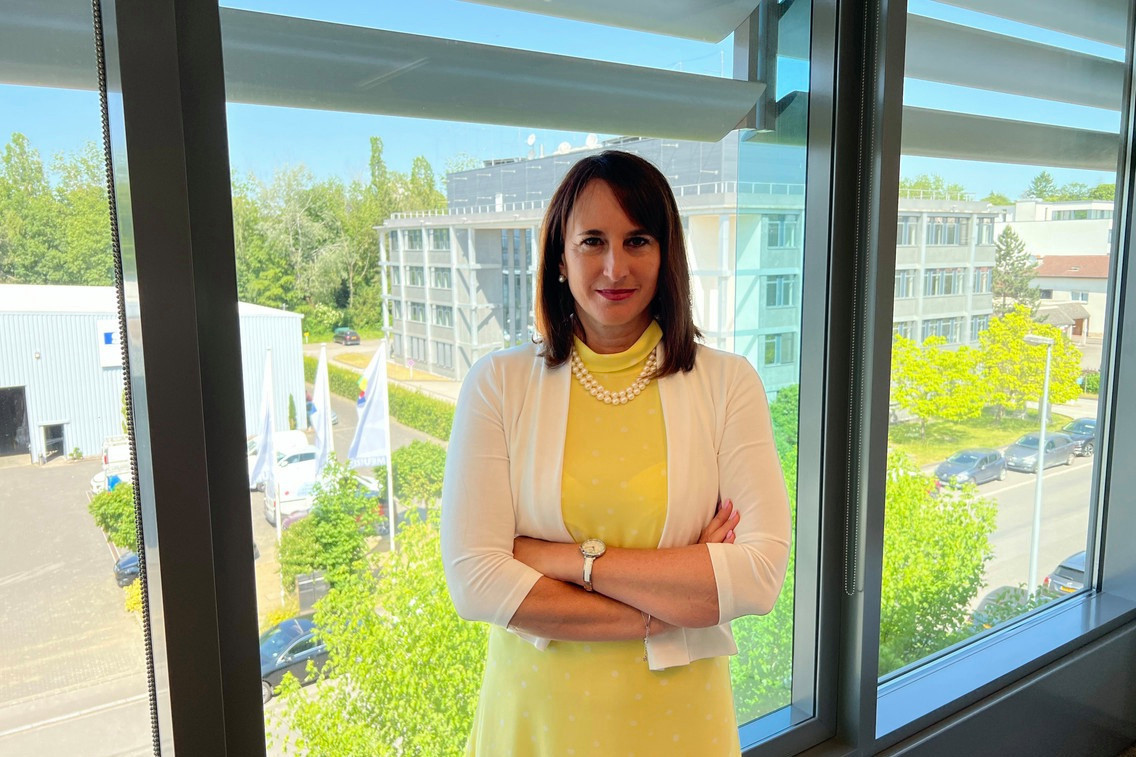Change is in the air at BNY Mellon Luxembourg. The bank has appointed a new leadership team, led by country head Brenda Bol, and is embarking on a new strategy. “We have a new branch management in place with a different approach and strategy,” Bol said.
Originating from Argentina, Bol started her career at Bank of New York in Brussels more than 25 years ago. Only a few years into the job, she and two colleagues were tasked with opening the bank’s Luxembourg branch in 1999. Following stints at Royal Bank of Canada, Clearstream and Brown Brothers Harriman, Bol returned to BNY Mellon last year to head the bank’s Luxembourg operations.
Among the list of priorities is growing BNY Mellon’s presence in Luxembourg. Bol said the bank had kept a relatively low profile in the years since the covid-19 outbreak. “We have not been as present in the market as maybe we should have been. We want to change this and be much more visible.”
The new strategy also involves developing closer ties with customers. Bol said recent turbulence in the banking industry, following the collapse of Credit Suisse and other smaller US banks, underlined the need for a stable and robust banking partner.
The bank wants to replicate its successful blueprint in the US and apply it here in Europe, according to Bol. “We are putting a lot of focus in Europe to make sure we are meeting the needs of our clients, especially in Luxembourg.”
Bol said the bank will also evolve its product and service offering from more traditional activities to complex ones, including in the alternative funds space. “Our approach over the years has changed from being a global service provider to supporting our clients in different stages of their business.”
It is not common in countries like the US and others in Europe to increase salaries by 2.5% twice a year.
Extremely high IT potential
BNY Mellon was formed following a merger of The Bank of New York and the Mellon Financial Corporation in 2007. But the bank’s origins can be traced back to 1784 when in became the first bank in New York state and later the first company to trade on the New York Stock Exchange. Now the world’s largest custodian bank and securities services companies, BNY Mellon provides clients worldwide global custody, depositary banking, accounting and transfer agency services out of Luxembourg.
Despite its rich history, BNY Mellon is looking to the future and has invested heavily in digital technology. Bol said BNY Mellon has an extremely high IT potential and its focus on technology is a key differentiator among competitors. “We are focused on investing in technology to drive efficiency and resiliency in our processes.”
Rising costs an issue for North American banks
BNY Mellon is due to take over the two-year rotating presidency of the Association of North American Bankers in Luxembourg (ANABL), a lobby group that represents the interests of North American banks operating in the grand duchy.
Bol said Luxembourg’s evolution and very robust regulatory environment has been very positive for North American banks. However, she said the rising cost of operating in Luxembourg, due to regular increases in salary indexation, is a barrier to expansion. “It is not common in countries like the US and others in Europe to increase salaries by 2.5% twice a year,” she said.
ANABL is in dialogue with the Luxembourg government and other decision makers on a more stable and predictable strategy when it comes to staff salaries in Luxembourg, according to Bol.
New recruitment drive
BNY Mellon currently employs over 300 staff at its office on Rue de Eugene Ruppert in Cessange. Bol said assets managed by the bank had grown by 230% over the past five years and that growth had fuelled an expansion in its workforce of between six and 10 percent during the same period. She said the bank had recently won a lot of new business and planned to hire new staff accordingly. “We want to keep the same ratio, more or less, of growth and the expansion of our business to the people we’re recruiting.”
BNY Mellon is applying a hybrid work model with staff working from the office a minimum of three days a week. Bol said the hybrid model is now common in American companies and critical to achieving the bank’s goals. “We believe in-person collaboration with clients and colleagues is essential to driving execution and commercial impact.”
This article was published for the Delano Finance newsletter, the weekly source for financial news in Luxembourg. .

